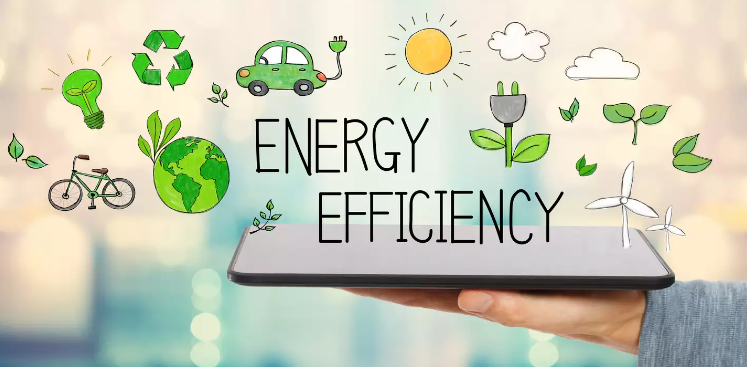Sustainability isn’t just a buzzword; Plan smart sustainable event practices it’s a way of life that’s shaping the world around us. As individuals and businesses become increasingly aware of their environmental impact, it’s no surprise that sustainable practices have made their way into the event planning industry. In this article, we delve into the world of sustainable event practices and how they can help you host eco-friendly, memorable events that leave a positive impact on both your attendees and the planet.

Introduction: Embracing Sustainability in Event Planning
The Environmental Imperative
Sustainability in event planning isn’t just a trend; it’s a response to the pressing
environmental challenges we face. From excessive waste to carbon emissions, events can
have a substantial ecological footprint. By adopting sustainable practices, we can
significantly reduce this impact.
The Win-Win of Sustainable Events
Sustainability isn’t just about saving the planet; it’s also about creating events that resonate
with attendees. People are increasingly drawn to eco-friendly events, and by going green,
you not only help the environment but also attract a more conscientious and engaged
audience.
What Are Sustainable Event Practices?

Sustainable event practices are all about hosting events while minimizing their
environmental footprint. It involves making conscious choices that reduce waste, conserve
resources, and promote social responsibility. The aim is to create events that are not only
enjoyable but also leave a positive impact on the planet.
Sustainable Event Planning: A Comprehensive Guide Venue Selection
Choosing the right venue is paramount in sustainable event planning. Look for spaces that
prioritize sustainability, such as those with LEED certifications. Additionally, consider
venues with ample natural light, which reduces the need for artificial lighting.
Transportation Options
Encourage attendees to use eco-friendly transportation options such as carpooling, public
transit, or cycling. Promote these alternatives through your event’s marketing materials
and provide incentives for those who choose sustainable commuting.
Sustainable Catering
When it comes to food and beverages, opt for local, organic, and seasonal options. Minimize
food waste by accurately estimating quantities and consider donating excess food to local
charities.
Eco-Friendly Decor
Decor plays a significant role in event aesthetics, and it can also be eco-friendly. Choose
reusable or recyclable materials for decorations, and consider potted plants as
centerpieces, which can double as gifts for attendees.
Waste Reduction
Implement a robust waste reduction strategy. Provide clearly labeled recycling and
compost bins, and minimize single-use items. Encourage attendees to bring reusable water
bottles and utensils.
Energy Efficiency
Reduce energy consumption by using LED lighting and programmable thermostats.
Consider utilizing renewable energy sources, such as solar panels, to power your event.
Digital Promotion
Opt for digital marketing and registration to reduce paper usage. Promote your event
through social media and email campaigns, and provide attendees with digital event
materials instead of printed copies.
Measuring Success: Tracking Your Environmental Impact

Data Collection
After the event, collect data on various sustainability metrics, such as waste diversion rates,
energy consumption, and carbon emissions. This information will help you assess your
event’s impact and identify areas for improvement.
Feedback from Attendees
Don’t forget to gather feedback from attendees regarding the sustainability initiatives at
your event. Their input can offer valuable insights and ideas for enhancing future events.
Why Should You Embrace Sustainability in Event Planning?
• Environmental Responsibility: By adopting sustainable event practices, you
contribute to reducing pollution, conserving resources, and protecting natural
habitats.
• Cost Savings: Going green often means saving green. Sustainable practices can lead
to lower energy bills, reduced waste management costs, and potential tax incentives.
• Positive Brand Image: Embracing sustainability can enhance your brand’s
reputation, attracting environmentally conscious clients and attendees.
• Legal Compliance: Some regions have regulations that require event planners to
adhere to certain sustainability standards. Staying compliant avoids legal hassles.
• Future-Proofing: As environmental concerns grow, businesses and individuals
increasingly favor sustainable events. Embracing this trend can future-proof your
event planning career.
How to Implement Sustainable Event Practices
Venue Selection
• Choose Green Venues: Opt for venues that have implemented sustainability
practices, such as LEED-certified buildings or those with efficient waste
management systems.
• Local Venues: Select venues close to your attendees to reduce transportation
emissions.
Waste Reduction

• Paperless Marketing: Use digital invitations, event apps, and online registration to
reduce paper usage.
• Waste Sorting Stations: Set up clearly marked recycling and composting bins to
encourage responsible disposal.
Sustainable Catering

• Local and Organic Food: Partner with caterers who source locally and use organic
ingredients.
• Reduce Food Waste: Plan portions carefully to minimize leftovers.
Energy Efficiency

• LED Lighting: Use energy-efficient LED lights and encourage natural lighting where
possible.
• Renewable Energy: If feasible, opt for renewable energy sources like solar or wind
power.
Transportation

• Carpooling and Public Transport: Promote carpooling and provide information
on public transportation options.
• Shuttle Services: Offer shuttle services for attendees to reduce the number of
individual vehicles.
FAQs
Q1: What is the first step in planning a sustainable event?
A1: The first step is to set clear sustainability goals and objectives. Determine what
environmental impact you want to minimize and create a plan to achieve those goals.
Q2: Can sustainable events be cost-effective?
A2: Yes, sustainable events can be cost-effective. While some eco-friendly options may have
higher upfront costs, they often result in long-term savings, making them a smart financial
choice.
Q3: How can I find eco-friendly suppliers and vendors?
A3: Look for suppliers and vendors who have certifications like Fair Trade or organic. Ask
about their sustainability practices, such as waste reduction and ethical sourcing.
Q4: What are some creative ways to make events more sustainable?
A4: Consider innovative ideas like virtual events, sustainable event swag, or interactive
displays that educate attendees about sustainability.
Q5: How do I communicate the sustainability efforts to event
attendees?
A5: Promote your sustainability initiatives through marketing materials, social media, and
during the event itself. Create signage and displays that highlight your eco-friendly choices.
Conclusion: A Sustainable Future for Event Planning
In a world where environmental consciousness is on the rise, planning sustainable events
is not just a trend; it’s a necessity. By adopting eco-friendly practices in your event
planning, you not only contribute to a greener planet but also appeal to a growing audience
of eco-conscious clients and attendees. So, go green, plan smart, and make a positive impact
with your next event.
